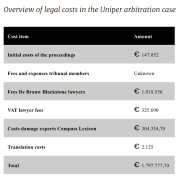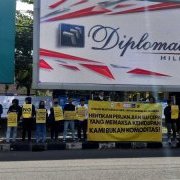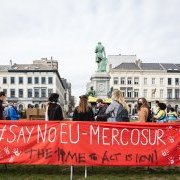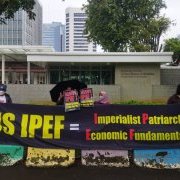21-Jul-2023
Common Dreams
One of the most controversial aspects of the hyperglobalization era, investor-state dispute settlement elevates multinational corporations and foreign investors to equal status with national governments.
19-Jul-2023
Climate Change News
Far-right president Jair Bolsonaro is gone but agribusiness and congress are still a threat to Brazil’s indigenous communities.
19-Jul-2023
Friends of the Earth Europe
A coalition of more than 450 organisations from Latin America and Europe criticised the announcement by leaders from the EU and Mercosur countries that they aim to resolve outstanding issues and conclude the EU-Mercosur trade agreement by the end of 2023.
17-Jul-2023
Indonesia for Global Justice
The protection of human rights, social justice, and a sustainable environment, particularly for the Indonesian people, are threatened by the Indonesia-EU CEPA negotiations in their current form, so Indonesian civil society organized an action to demand that the European Commission and the Government of Indonesia immediately halt them.
13-Jul-2023
bilaterals.org
The journey of EPAs continues to unfold, with each chapter revealing new complexities and challenges. As negotiations progress, it remains crucial to monitor the evolving dynamics and their implications for trade relations between the EU and its partner countries.
11-Jul-2023
Ngā Toki Whakarururanga
The NZ EU FTA does not promote and protect the rights, interests, duties and responsibilities of Māori in a Te Tiriti-compliant manner and offers minimal, if any, concrete economic benefits to Māori businesses and workers.
5-Jul-2023
Third World Network
IPEF is designed by the US for its own prosperity, with developing countries unlikely to gain anything significant from it. Even if the IPEF does not eventually include dispute settlement provisions, and despite some of the provisions appearing to be only statements of intent and more in the nature of cooperation
30-Jun-2023
Heinrich Böll Stiftung
Can India protect its development objectives by signing a free trade agreement with an unequal partner with different ambitions?
30-Jun-2023
Public Citizen
We stand in solidarity with the people of Honduras and condemn US company Próspera’s $11 billion case against the will of the people.
























